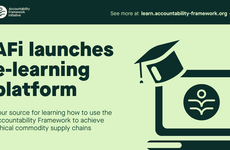
EAT Embodies a Vision for Sustainable and Accessible Food
References: behance.net & eatforum.org
EAT is a not-for-profit organization started by the Stordalen Foundation, the Stockholm Resilience Centre and the Wellcome Trust, with the idea to "catalyze a food system transformation." The multi-faceted, global initative is a science-based effort to disrupt existing, ineffective frameworks.
EAT adopted a 10-point plan in 2017 that the organization plans to complete by 2020. With regard to long-term goals, the collective is hoping to initative food system transformation efforts that will "shift the world to healthy, tasty and sustainable diets," "safeguard our land and oceans," "radically reduce food losses and waste" and more. EAT is continuously addressing these problems through interdisciplinary partnerships across all sectors, sound science and the like.
As concerns about the environment are rising and resource become scarce, nonprofit entities with a focus on sustainable practices and food system transformation are essential.
EAT adopted a 10-point plan in 2017 that the organization plans to complete by 2020. With regard to long-term goals, the collective is hoping to initative food system transformation efforts that will "shift the world to healthy, tasty and sustainable diets," "safeguard our land and oceans," "radically reduce food losses and waste" and more. EAT is continuously addressing these problems through interdisciplinary partnerships across all sectors, sound science and the like.
As concerns about the environment are rising and resource become scarce, nonprofit entities with a focus on sustainable practices and food system transformation are essential.
Trend Themes
1. Sustainable Food Systems - Opportunity to disrupt traditional food systems by creating sustainable and eco-friendly practices.
2. Reducing Food Waste - Opportunity to create innovative solutions to reduce food waste and implement these practices in food systems worldwide.
3. Healthy and Tasty Diets - Opportunity to create new food products and services that prioritize both taste and nutrition, contributing to a shift towards healthier diets.
Industry Implications
1. Non-profit - Non-profit organizations focused on sustainability and food system transformation have the opportunity to make a significant impact on the way we produce, distribute and consume food.
2. Food Manufacturing - Food manufacturing companies have the opportunity to create healthy and sustainable products that cater to the changing preferences of consumers.
3. Retail and Distribution - Retail and distribution companies have the opportunity to embrace sustainable and eco-friendly practices from sourcing to packaging to marketing to meet the demands of consumers who prioritize ethical and sustainable practices.
4.5
Score
Popularity
Activity
Freshness























